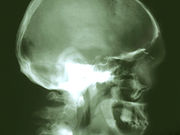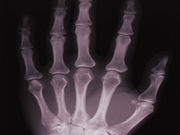Vitamin D May Help Reduce Risk of Acute Respiratory Infection
Association seen between vitamin D supplementation and decreased likelihood of respiratory infection
Smoking, T4 Tumors Up Distant Mets in HPV+ Oropharyngeal CA
Increased rates of distant metastases for active smokers, T4 tumors among those with HPV+ cancer
Zika RNA Appears to Clear Semen After About Three Months
But scientists say recs urging abstinence, condoms for six months after infection should still be followed
Bacteria, Fungi Found in Some Medicinal Marijuana Samples
Man undergoing cancer treatment died from fungal infection thought to come from medical marijuana
Short-Course Tocilizumab May Up Hep B Reactivation in RA
Three patients with chronic HBV infection had reactivation, but they were asymptomatic
Reduced Immune Response After Intradermal Flu Shot in Eczema
Reduced immune response after intradermal vaccination among patients colonized with S. aureus
Rise in Unsafe Practices Among Men Who Have Sex With Men
Researchers report increased beliefs that treatments prevent HIV and increased condomless anal sex
Valproic Acid Plasma Levels Down With Concomitant Meropenem
Concomitant use of meropenem linked to decrease in VPA plasma level, regardless of MEPM dose
Evaluation of Sepsis Varies Across Newborn Nurseries
Obstetric diagnosis of chorioamnionitis is most commonly used factor to identify risk for EOS
Infection Risk Lower for Etanercept Vs Monoclonal Ab Rx
Findings from meta-analysis of patients with rheumatoid arthritis



















